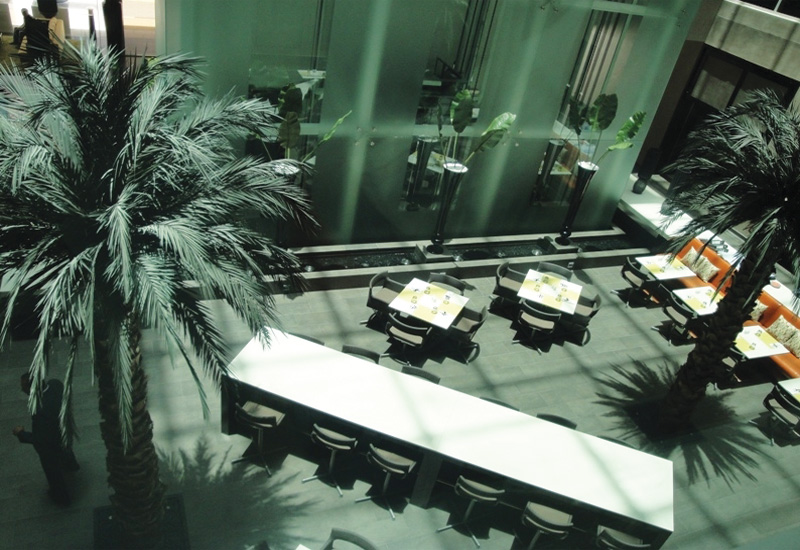Owners' expectations
In addition to ensuring that guests in the Middle East market have their demands met when staying in a mid-scale property, it is also important for operators to consider the expectations of owners in the budget segment.
“You will see a much quicker return on investment (ROI) [with a budget hotel] definitely because of the manpower. That is very expensive in the UAE, so by saving on manpower you will definitely have a better bottom line and your expenses will be less because you are not offering all of the additional services you need extra staff for,” explains Madkour.
In addition to seeing a faster ROI, Crawford explains that owners are also attracted to budget hotels due to the lower upfront costs of a mid-scale property.

| Advertisement |
“The investment [in a budget hotel] is considerably less than for a luxury hotel,” he says.
“Smaller standardised rooms mean that smaller plots are required, reducing both land and build costs. Public areas are limited and no space is wasted. Fountains in the foyer and beautiful gardens look great, but somebody has to pay for them. This is usually the guest,” Crawford adds.
Budget hotels have also proved their worth in the last few years, as they are far better placed than luxury hotels to retain business during a downturn.
“Budget hotels can make a breakeven point at anywhere between 30-45% occupancy depending on room rate, whereas when you’ve got a full service hotel the bill costs are higher,” explains Bridger.
“So the advantage is that budget hotels are more resilient in a downturn, and in a tough market. So Dubai is a tough market, and budget hotels seem to be holding up better,’ he concludes.
Regional overview
Dubai is often acknowledged as a trend setter in the region, and just as budget hotels have seen success in the Dubai market, the popularity of a mid-market product has spread across the rest of the Middle East market.
In Qatar, the success of the World Cup 2022 bid has seen a spate of budget hotel brands looking to establish a property in the country in anticipation of hoards of football fans attending the event and seeking out cheap accommodation.
Discussing plans to expand Dohaland’s offerings, Dohaland Hospitality CEO Abdul Aziz Al-Emadi comments: “We have to consider that the people who are coming to Qatar from different countries will not fly to watch the football and come for a short visit — they will really think about their total expense so it is very important to have something affordable.”
“This is the time for the budget hotel,” he adds.
International budget brands have recognised the potential for their model beyond the UAE, with Rotana last year announcing plans for Centro properties in Saudi Arabia and potentially in other destinations in the region.
Selim El Zyr, president and CEO of Rotana, confirmed that the hotel group, which plans for more than 70 properties by 2012, aims to expand its budget brand across the MENA region over the next four years.
“Rotana is currently working towards the opening of 25 ‘Centro Hotels by Rotana’ properties across the MENA Region by 2014, introducing a unique out-of-the-box solution for the mid-tier market,” says El Zyr.
The need for three-star brands is also being recognised by country leaders, who want the hotel market in the Middle East to be as diverse as possible to open up the region to a wider range of travellers.
In Yemen, the tourism authority last year announced plans to generate capital for up to 44 budget hotels across the country, while in other Middle Eastern countries without a well established budget market, such as Lebanon, there is great potential to exploit the limited service sector — making it an attractive prospect for international budget brands wanting to establish their presence in new markets.
From both ends of the scale — whether in markets where budget brands are already well established to locations with only a smattering of mid-scale hotels — there remains room for development and growth in what is now a significant, powerful and profit-generating sector.
How the prices match up
Hotelier compared the prices of the big name budget brands, to see what guests could expect to pay for a night’s stay in the modern mid-scale Dubai market.
All prices are based on a single person staying one night only, booked on February 16th for February 21st:
- Holiday Inn Express Dubai Airport — US $ 120 per night for a standard room
- Premier Inn Dubai Airport — US $ 149 per night for a standard room
- Citymax, Barsha — US $ 80 per night for a standard room
- Centro hotel, Barsha — US $ 95 per night for a classic queen size room
- Easyhotel, Jebel Ali — US $ 29 per night for a standard room (but customers can expect to pay an extra $ 8 for a TV remote which is valid for 24 hours)









 Search our database of more than 2,700 industry companies
Search our database of more than 2,700 industry companies









